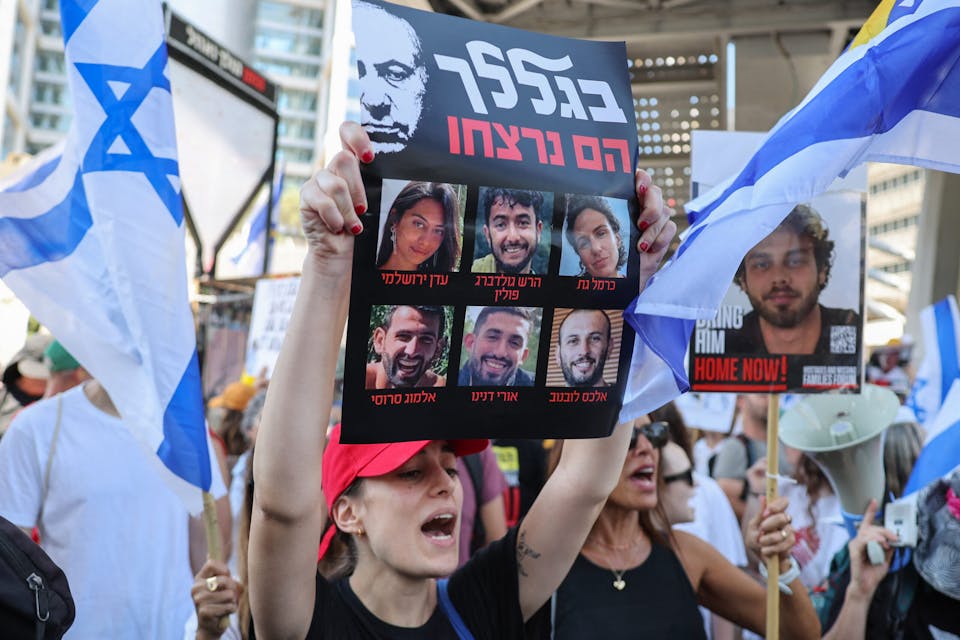
September 6, 2024
Podcast: Liel Leibovitz on What the Protests in Israel Mean
By Tikvah Podcast at MosaicThe author of a recent essay on the subject uses it as an occasion to look into the ongoing drama of modern Zionism and the meaning of modern Israel.
Podcast: Liel Leibovitz
For a while after October 7, the war produced an atmosphere of national solidarity in Israel, quieting some of the tensions that had divided Israelis from one another with a special intensity throughout the previous year. That quiet now seems to be ending.
There was always bound to be a tension between two of the Israeli government’s primary war aims: that of rescuing the hostages, and that of defeating Hamas until total victory. The government insists that it is pursuing both of these aims, but many Israelis don’t believe it. Many of them are persuaded that Prime Minister Netanyahu is prolonging the war and foregoing opportunities to secure the hostages’ freedom because the war keeps his political coalition together and that keeps him in power. Tens of thousands of Israelis, mapping more or less onto the tens of thousands of judicial-reform opponents seen last year, are now in the streets protesting.
Subscribe to Continue Reading
Get the best Jewish ideas and conversations. Subscribe to Tikvah Ideas All Access for $12/month
Login or Subscribe